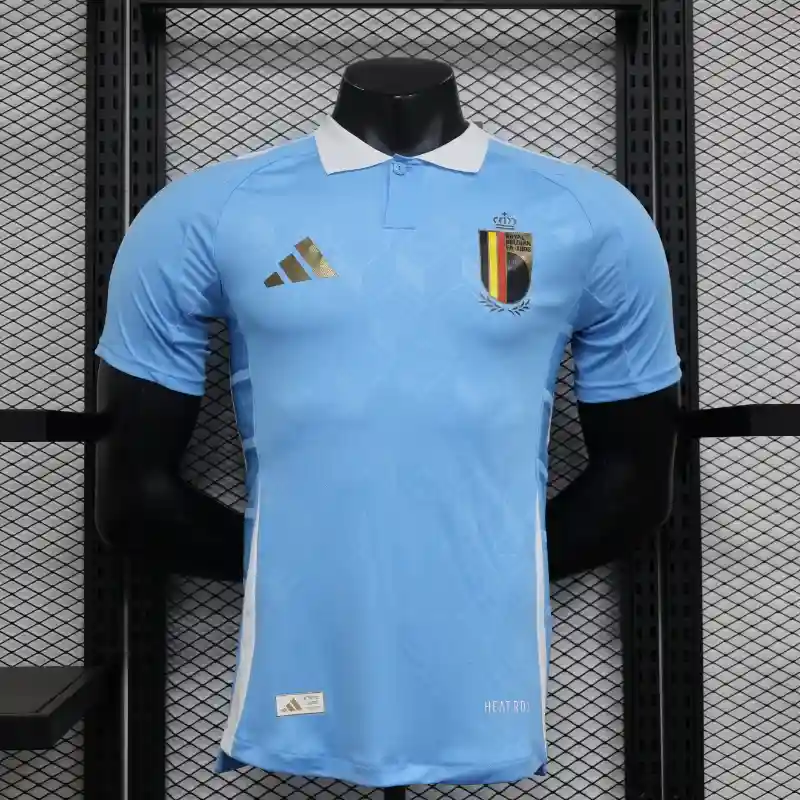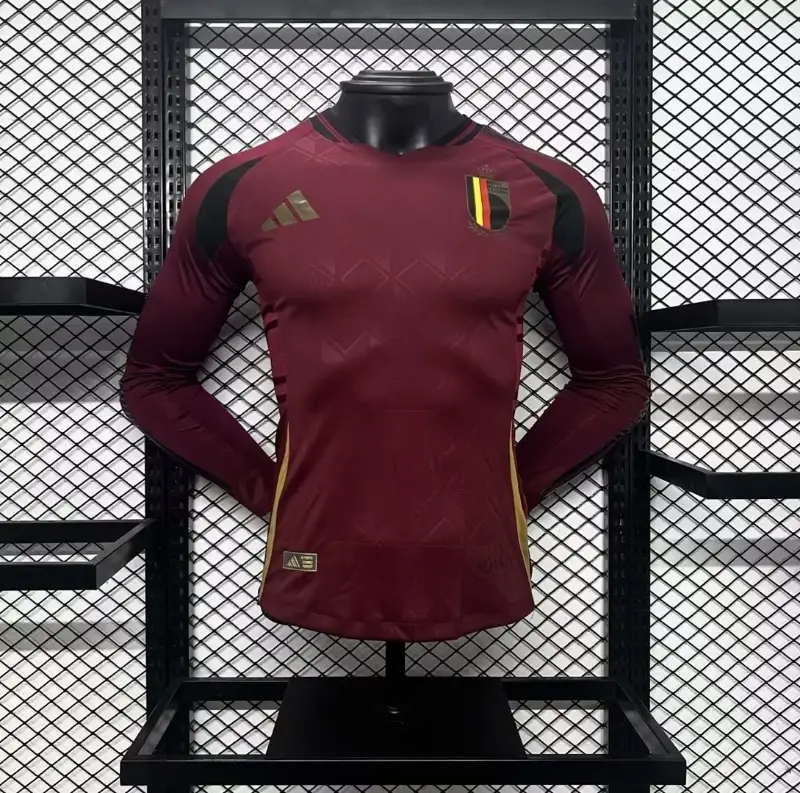

soccer yupoo Belgium's national jerseys team, affectionately known as the Red Devils (Les Diables Rouges), boasts a rich history and an impressive array of talent that has solidified its status as one of the top national teams in Europe and the world. The journey of Belgian soccer reflects the country’s cultural diversity, passionate fan base, and moments of triumph and heartbreak. YUPOO china B2B2C Wholesale Supplier Branded national belgium soccer jerseys, join us on whatsapp | Yupoo fashion national teams belgium soccer jerseys players jerseys football retro jerseys reseller online store , Yupoo jerseys Replica top version for yupoo wholsale drop shipping jerseys to worldwide.
The Belgium national football team, famously known as Les Diables Rouges (the Red Devils), is a powerhouse in international football, boasting a rich history and a golden generation of talent. Governed by the Royal Belgian Football Association (RBFA), the team has been a formidable presence since their debut in 1904. Known for their passionate red jerseys, inspired by the national flag, the Red Devils have captured global attention with their stylish kits and dynamic play. This article delves into the team’s storied past, their iconic jerseys, and their cultural significance, drawing on credible sources while ensuring originality.
Belgium’s football legacy began over a century ago, with their first international match in 1904. Nicknamed the Red Devils for their fiery red kits and tenacious spirit, they have competed in 12 FIFA World Cups, four UEFA European Championships, and three Olympic tournaments, including a gold medal win in 1920. Their standout performances include victories over reigning world champions like West Germany, Brazil, Argentina, and France between 1954 and 2002. The team’s pinnacle came in 2015 when they topped the FIFA world rankings, a testament to their golden generation featuring stars like Kevin De Bruyne, Romelu Lukaku, and Eden Hazard.
Currently managed by Domenico Tedesco, Belgium plays home matches at the King Baudouin Stadium in Brussels, where fans create an electric atmosphere. Despite their talent, the Red Devils have yet to win a major tournament, with a semifinal loss to France in the 2018 World Cup being a notable near-miss. Their jerseys, produced by Adidas, reflect their bold identity and remain a symbol of national pride.
Belgium’s jerseys have evolved from simple designs to cutting-edge sportswear, blending tradition with innovation. Historically, brands like Diadora and Nike supplied the team, but Adidas has been the official kit manufacturer since 2014, delivering iconic designs that resonate with fans. The jerseys are updated every two years, aligning with major tournaments like the UEFA European Championship or FIFA World Cup.
The home jersey is a striking red, embodying passion and strength, with black and yellow accents inspired by the Belgian flag. The 2024/25 home kit features a darker red shade with gold detailing, giving it a regal, classy look. The RBFA crest, a crowned shield with the team’s emblem, sits proudly on the chest, often paired with the Adidas logo. Subtle patterns, like diagonal stripes or geometric shapes, add a modern flair, while AEROREADY technology ensures moisture-wicking comfort for players and fans.
The kit is completed with black shorts and red socks, creating a cohesive, intimidating look on the pitch. Fans can personalize jerseys with names and numbers of stars like De Bruyne or Lukaku, available through retailers like Fanatics and ProSoccer.
The away jersey often alternates between white and yellow, reflecting the flag’s secondary colors. In 2024, Belgium unveiled a unique away kit inspired by the iconic Belgian comic character Tintin, created by Hergé. The kit features a light blue shirt, brown shorts, and white socks, mimicking Tintin’s classic outfit—a retro, cultural tribute that has sparked global buzz. The design includes red and black sleeve accents and the RBFA crest, maintaining national pride. An earlier controversy in 2022 saw the white away kit banned by FIFA for its “Love” graphic, forcing the team to wear their home kit instead.
Goalkeeper jerseys typically feature bold colors like black, navy, or green, with reinforced stitching for durability. Alternate kits, such as the black or yellow designs used in past tournaments, offer sleek alternatives for fans. These kits prioritize functionality with slim cuts and breathable fabrics, ideal for high-intensity matches.
Belgium’s jerseys are more than sportswear; they are cultural artifacts that unite a diverse nation. The red, black, and yellow colors echo the flag’s symbolism of unity and resilience, while the RBFA crest connects fans to the team’s storied history. The 2024 Tintin-inspired away kit, for instance, celebrates Belgium’s artistic heritage, appealing to both football and comic enthusiasts. For the Belgian diaspora in countries like the United States and Canada, wearing the jersey fosters a sense of belonging, especially during major tournaments.
The jerseys also reflect Belgium’s footballing philosophy: bold, creative, and relentless. Fans wear them to matches, pubs, or casual outings, showcasing pride in the Red Devils’ global rise. Social media posts highlight their universal appeal, with fans praising the 2024 home kit’s “classy” gold accents and the away kit’s “rustic, retro” vibe.
Authentic Belgium jerseys are available through trusted retailers:
Fanatics: Offers officially licensed jerseys, scarves, and hats in various sizes, with rigorous quality standards.
ProSoccer: Provides home and away kits with fast shipping, ideal for fans supporting stars like Lukaku.
Adidas Official Store: Sells jerseys with AEROREADY technology, plus lifestyle gear like hoodies and pants.
Foot-Store: Stocks match and training kits for adults and kids, including the Tintin-inspired away jersey.
World Soccer Shop: A go-to for authentic Belgium apparel, with options for personalization.
Fans should beware of counterfeit jerseys, which lack the quality and authenticity of official kits. Prices for the 2024/25 home jersey start at around €90, with youth sizes slightly lower.
Belgium jerseys are versatile, blending sporty functionality with streetwear appeal. The home kit’s bold red pairs well with black jeans and sneakers for a casual look, while the Tintin-inspired away kit adds a quirky, vintage vibe when styled with chinos and loafers. The jerseys’ lightweight, breathable fabrics make them suitable for workouts, pickup games, or summer outings. Accessories like RBFA scarves or caps enhance the fan experience, especially at matches.
With a talented squad and innovative kit designs, Belgium is poised for future success. The 2024/25 jerseys, particularly the Tintin-inspired away kit, signal a team confident in its identity and cultural roots. As the Red Devils aim for their first major trophy, their jerseys will continue to evolve, incorporating advanced fabrics and bold designs. Fans worldwide will don these kits, rallying behind a team that embodies passion and potential.
In conclusion, the Belgium national soccer team’s jerseys are a vibrant symbol of national pride, cultural heritage, and footballing ambition. From the fiery red home kit to the Tintin-inspired away design, each jersey tells a story of resilience and creativity. Whether worn on the pitch or in the streets, the Red Devils’ kits unite fans in their love for Les Diables Rouges, making them a cherished emblem of Belgian football.